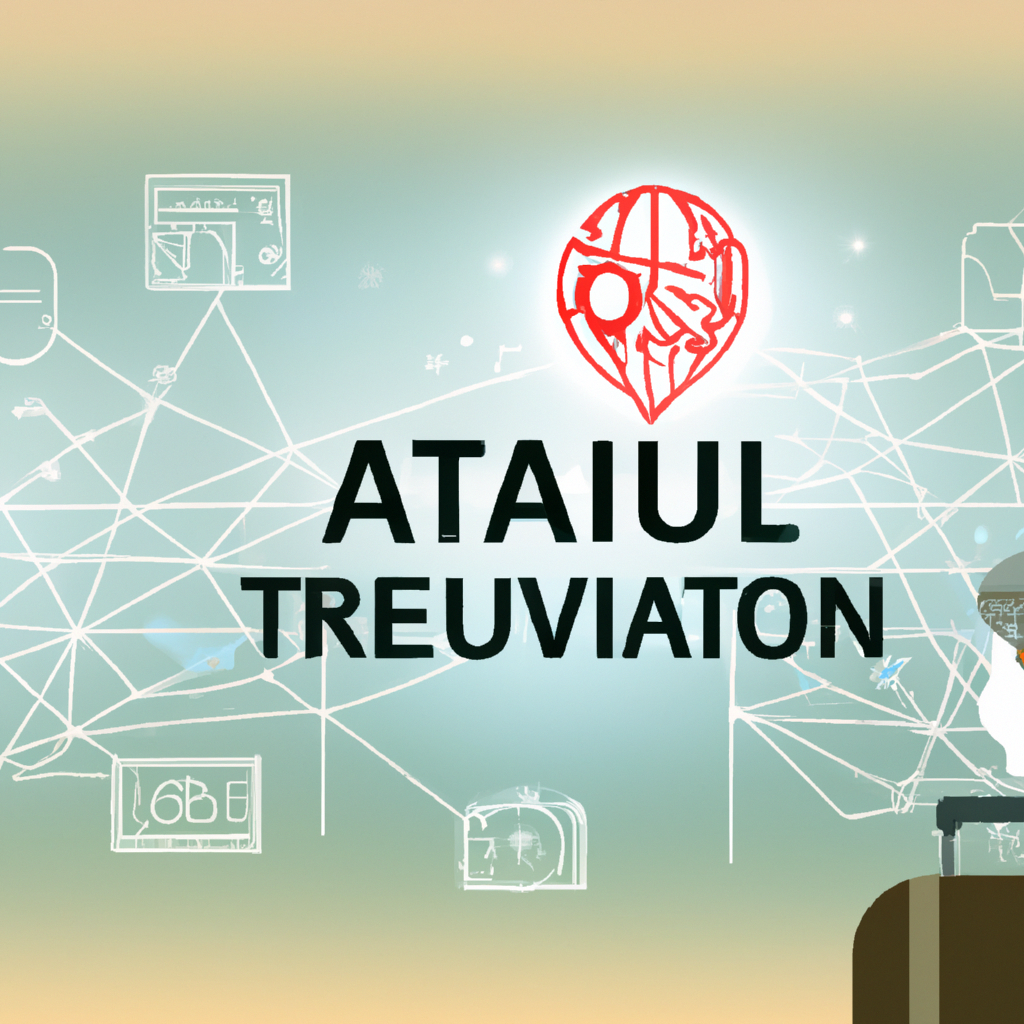-
Table of Contents
, AI is Revolutionizing Travel.
Introduction
Artificial Intelligence (AI) is revolutionizing the travel industry, from personalized recommendations to virtual tour guides. AI is enabling travelers to have a more personalized and efficient experience, while also providing businesses with the opportunity to better understand their customers and provide more tailored services. AI-powered technologies are being used to automate processes, provide personalized recommendations, and even create virtual tour guides. AI is also being used to improve customer service, enhance safety, and reduce costs. With AI, travelers can now enjoy a more personalized and efficient experience, while businesses can benefit from improved customer service and cost savings.
How AI is Transforming the Travel Industry
The travel industry is undergoing a major transformation thanks to the introduction of artificial intelligence (AI). AI is revolutionizing the way travelers plan and book their trips, making the process easier and more efficient than ever before.
AI is being used to automate many of the tedious tasks associated with travel planning. For example, AI-powered chatbots can help travelers quickly find the best deals on flights, hotels, and rental cars. AI can also be used to provide personalized recommendations based on a traveler’s preferences and past travel history. This helps travelers find the perfect destination and plan their trip with ease.
AI is also being used to improve the customer experience. AI-powered virtual assistants can provide personalized customer service, helping travelers with their queries and providing them with the information they need. AI can also be used to analyze customer feedback and provide insights into how to improve the customer experience.
AI is also being used to improve the safety and security of travelers. AI-powered facial recognition technology can be used to quickly and accurately identify travelers at airports and other transportation hubs. AI can also be used to detect suspicious activity and alert authorities in real-time.
The travel industry is just beginning to scratch the surface of what AI can do. As AI technology continues to evolve, it will become even more integral to the travel industry, making the process of planning and booking trips easier and more efficient than ever before.
Exploring the Benefits of AI-Powered Travel Planning
Are you looking for a way to make your travel planning easier and more efficient? If so, you may want to consider the benefits of AI-powered travel planning.
AI-powered travel planning is a revolutionary way to plan your trips. It uses artificial intelligence (AI) to help you find the best deals, book flights and hotels, and even plan your itinerary. With AI-powered travel planning, you can save time and money while still having an amazing trip.
One of the biggest benefits of AI-powered travel planning is that it can help you find the best deals. AI algorithms can search through thousands of websites and compare prices to find the best deals for you. This means you don’t have to spend hours searching for the best prices – AI can do it for you.
Another benefit of AI-powered travel planning is that it can help you book flights and hotels. AI algorithms can search through hundreds of websites to find the best flights and hotels for you. This means you don’t have to spend hours searching for the best deals – AI can do it for you.
Finally, AI-powered travel planning can help you plan your itinerary. AI algorithms can analyze your preferences and suggest activities and attractions that you may enjoy. This means you don’t have to spend hours researching what to do – AI can do it for you.
Overall, AI-powered travel planning is a great way to make your travel planning easier and more efficient. It can help you find the best deals, book flights and hotels, and even plan your itinerary. So, if you’re looking for a way to make your travel planning easier and more efficient, you may want to consider the benefits of AI-powered travel planning.
The Impact of AI on Airline Ticket Prices
The impact of artificial intelligence (AI) on airline ticket prices is an interesting topic that has been gaining attention in recent years. AI technology has the potential to revolutionize the airline industry, and it could have a significant impact on ticket prices.
AI can be used to analyze data and make predictions about customer behavior. This can help airlines better understand customer preferences and make more informed decisions about pricing. AI can also be used to automate certain processes, such as ticketing and customer service, which can help reduce costs and improve efficiency.
AI can also be used to optimize airline routes and schedules. By analyzing data, AI can help airlines identify the most efficient routes and schedules, which can help reduce costs and improve customer satisfaction. This can lead to lower ticket prices for customers.
AI can also be used to improve customer service. AI-powered chatbots can provide customers with quick and accurate answers to their questions, which can help reduce customer service costs and improve customer satisfaction.
Finally, AI can be used to improve security. AI-powered facial recognition technology can help airlines identify potential threats and prevent them from boarding flights. This can help reduce costs and improve safety for passengers.
Overall, AI has the potential to revolutionize the airline industry and have a significant impact on ticket prices. By using AI to analyze data, automate processes, optimize routes and schedules, improve customer service, and improve security, airlines can reduce costs and improve customer satisfaction, which can lead to lower ticket prices.
How AI is Enhancing the Hotel Experience
The hotel industry is rapidly changing, and artificial intelligence (AI) is playing a major role in this transformation. AI is helping hotels provide a more personalized and efficient experience for their guests. From virtual assistants to automated check-in and checkout processes, AI is making the hotel experience more enjoyable and convenient.
One of the most exciting ways AI is enhancing the hotel experience is through virtual assistants. These virtual assistants can answer questions, provide recommendations, and even book reservations. They can also provide personalized recommendations based on a guest’s preferences and past experiences. This helps create a more tailored experience for each guest.
AI is also being used to automate the check-in and checkout processes. This helps reduce wait times and makes the process more efficient. AI can also be used to monitor the hotel’s energy usage and adjust the temperature and lighting accordingly. This helps reduce energy costs and makes the hotel more eco-friendly.
AI is also being used to improve the security of hotels. AI-powered cameras can detect suspicious activity and alert the hotel staff. This helps ensure the safety of guests and staff.
Finally, AI is being used to improve the customer service experience. AI-powered chatbots can answer questions and provide helpful information. This helps reduce wait times and makes the customer service experience more efficient.
Overall, AI is transforming the hotel experience and making it more enjoyable and convenient for guests. From virtual assistants to automated check-in and checkout processes, AI is helping hotels provide a more personalized and efficient experience for their guests.
The Future of AI-Powered Virtual Tour Guides
The future of AI-powered virtual tour guides is an exciting one. With the rise of artificial intelligence (AI) and its ability to learn and adapt, virtual tour guides are becoming increasingly sophisticated and capable of providing a more personalized experience for visitors.
AI-powered virtual tour guides are able to provide a more interactive experience than traditional tour guides. They can use natural language processing to understand and respond to questions, as well as provide detailed information about the attractions they are guiding visitors through. AI-powered virtual tour guides can also be programmed to recognize and respond to facial expressions and body language, allowing them to provide a more personalized experience.
AI-powered virtual tour guides can also be used to provide a more immersive experience. For example, they can be programmed to provide audio and visual cues to help visitors explore the attractions they are visiting. They can also be programmed to provide interactive experiences, such as quizzes and games, to help visitors learn more about the attractions they are visiting.
AI-powered virtual tour guides can also be used to provide a more efficient experience. For example, they can be programmed to recognize and respond to visitor preferences, such as language, age, and interests, to provide a more tailored experience. They can also be programmed to provide recommendations for nearby attractions and restaurants, as well as provide directions and other helpful information.
The future of AI-powered virtual tour guides is an exciting one. With the continued development of AI technology, virtual tour guides will become increasingly sophisticated and capable of providing a more personalized and immersive experience for visitors. As AI technology continues to evolve, virtual tour guides will become even more capable of providing a more efficient and enjoyable experience for visitors.
Conclusion
AI has revolutionized the travel industry, from personalized recommendations to virtual tour guides. AI-powered technologies have enabled travelers to access more information, make better decisions, and have a more personalized experience. AI has also enabled travel companies to better understand their customers and provide more tailored services. AI is here to stay and will continue to shape the future of travel.




